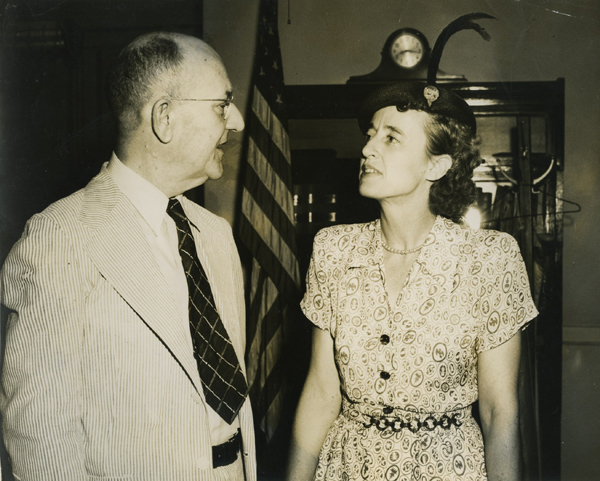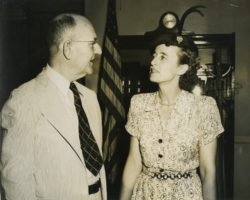Sarah Towles Reed
Sarah Towles Reed founded the first teachers union in New Orleans and worked for women's rights, educational reform, the plight of labor, and racial justice throughout her long public life.

Courtesy of Earl K. Long Library, University of New Orleans
Sarah Towles Reed. Unidentified
Public school teacher Sarah Towles Reed founded the local affiliate of the American Federation of Teachers union in New Orleans. As an outspoken advocate of women’s rights, educational reform, labor, and racial justice, she fought for academic freedom and economic justice throughout her long public life. From the time she graduated from Sophie Newcomb College in 1904 until her retirement in 1951, her work on behalf of New Orleans teachers frequently provoked authorities, who attempted to discredit her more than once.
Sarah Butler Towles, born on March 8, 1882, at Ouida Plantation near St. Francisville in West Feliciana Parish, was the daughter of Sarah Butler Ker and Daniel Towles. As a child, Sarah Towles moved to New Orleans with her family, and in 1900 enrolled in Newcomb College. In 1906, she earned a master’s degree from Tulane and, in 1925, a law degree from Loyola University. She never practiced law, but she used her legal acumen to advance the interests of her colleagues in the New Orleans teaching corps.
In her first public campaign on behalf of public school teachers during the 1920s, Reed demanded an end to the customary practice of paying women teachers less than their male counterparts. Beginning with the salary equalization struggle, which culminated in a legislative act passed in 1928 prohibiting sex discrimination in salaries, she became the most visible activist in the women teachers’ fight for economic justice.
In 1925, Reed helped found a teachers’ association, the New Orleans Public School Teachers Association (NOPSTA) and, in 1934, spearheaded the effort to organize a new union, the Classroom Teacher’s Federation (CTF), Local 353, of the American Federation of Teachers, AFL. Reed continued to serve as NOPSTA’s legislative liaison even after the new union was formed; for nearly fifty years, she never missed a session of the state legislature.
When the legislature passed a tenure bill for New Orleans teachers in 1936, Reed and her allies experienced one of their greatest victories. That same year, they also succeeded in overturning the prohibition against employing married women teachers, an impressive accomplishment in light of the strong national prejudice against the employment of married women during the Great Depression. It was a significant personal victory for Reed, who had been married sometime between 1918 and 1921 and was forced to keep it secret since women teachers who married would be automatically fired. Her husband was killed in a car accident in 1921.
It was also during the Depression that Reed began to promote interracial cooperation among teachers. Reed actively worked with African American teachers for salary raises and unionization, thereby earning the animosity of many within the white New Orleans educational establishment.
In 1948, the school superintendent, tired of Reed’s activism, brought her before the Orleans Parish School Board for a hearing on charges of “not stressing the American way of life as superior in every respect to Communism or other ‘isms.’” She insisted on a public hearing. The overwhelming support of teachers, students, and community members forced the board to exonerate Reed of the fraudulent charges.
Even in retirement, Reed remained outspoken and active. She continued to fight for teachers, leading several battles involving retirement benefits and pay raises, until illness forced her to withdraw from public life in 1972.
